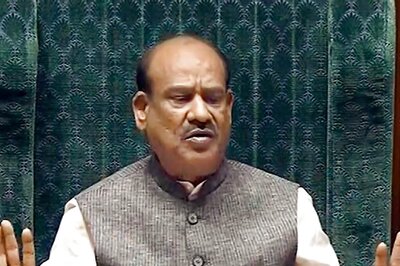
views
Vegetarian diets are low on protein and need protein supplementation, while non-vegetarians have a fairly good protein intake for a not-so-active lifestyle. Experts suggest people must keep a check on protein intake for better growth.
Sanjay Tiwari, Founder and CEO of Brio Capputeino has doled out tips on how one can take care of excessive protein intake:
- There are various ways to keep track of one's protein intake. Following a traditional route, you could begin by maintain a journal stating your protein intake through the course of the day.
- In today's day and age, fitness apps come in handy to log your daily protein intake. This is a more efficient way to keep track of your diet.
- The key to manage the ideal protein intake lies in the fundamental rule of consuming a well-balanced nutritional diet along with a regular fitness regime.
Avni Kaul, Dietician at Fitness First Iconic in south Delhi's Saket, says protein is a highly essential component that a person requires, because it assists in repairing and rebuilding body tissues. However, excessive consumption of protein can prove to be injurious to health.
- Nutritional insufficiency: Since the primary focus lies on the consumption of protein, people tend to overlook other nutrients which are essential for your body to function normally.
- Weight gain: A high protein diet may be helpful to fulfil one's short term goals. However, in the long run, excess of calories from an overload of protein consumption, may lead to weight gain.
- Constipation: Excess protein intake can lead to certain problems related to digestion and is linked with problems such as constipation and diarrhoea.
















Comments
0 comment